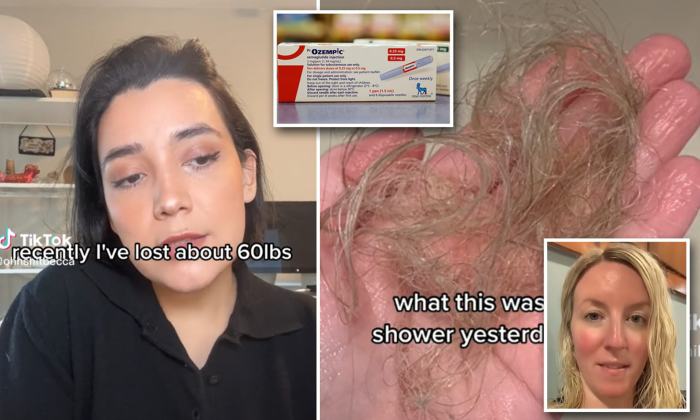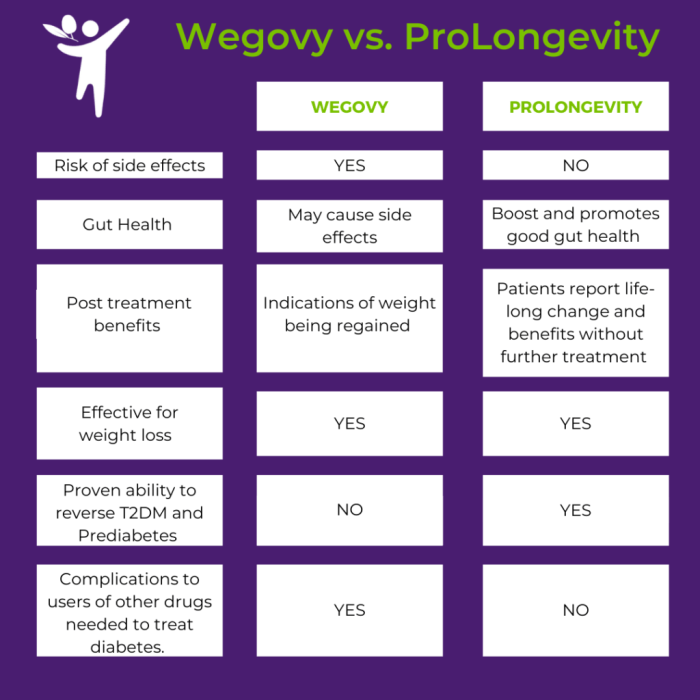Wegovy hair loss risk is a growing concern for users of this weight-loss medication. This article explores the potential link between Wegovy and hair health, examining the drug’s mechanisms, potential hormonal disruptions, and the experiences reported by those using it. We’ll delve into the science behind hair loss, the potential impact on the hair growth cycle, and the documented anecdotal evidence surrounding this issue.
Understanding the potential for Wegovy to affect hair health is crucial for anyone considering or currently using this medication. This article aims to provide a balanced overview, drawing on scientific data and real-life accounts to paint a clearer picture of the potential risks.
Wegovy and Hair Health Overview

Wegovy, a weight-management medication, works by mimicking a naturally occurring hormone that regulates appetite and food intake. This action can have a wide range of effects on the body, including changes in metabolism, energy levels, and even hormone production. Understanding how Wegovy interacts with these systems is crucial for evaluating potential side effects, including any impact on hair health.Wegovy’s primary mechanism of action involves influencing the hormones that control appetite and satiety.
While some folks report hair loss as a side effect of Wegovy, understanding the underlying reasons is key. A crucial part of figuring out potential causes is examining your urinalysis results, which can reveal valuable insights into your overall health. For example, checking what do your urinalysis results mean might help pinpoint if there are any imbalances that could contribute to hair loss.
Ultimately, if you’re concerned about hair loss while using Wegovy, discussing it with your doctor is essential for personalized advice.
While its primary target is weight management, the body’s intricate hormonal network means that changes in one area can ripple through other systems. This is especially important when considering the delicate balance of hormones needed for healthy hair follicle function. Potential shifts in hormone levels could, therefore, affect the hair growth cycle, leading to temporary hair loss or other changes.
While the potential for Wegovy-related hair loss is a concern, it’s crucial to remember that access to quality type 2 diabetes care is paramount. Finding the right support system and healthcare professionals, like those specializing in access to type 2 diabetes care , is essential for managing the condition effectively, which in turn could indirectly influence the likelihood of experiencing hair loss as a side effect.
Ultimately, ongoing discussion with your doctor about any potential side effects of Wegovy remains key.
Hair Growth Cycle and Hormonal Influences
The hair growth cycle is a complex process involving several phases. Normal hair growth is dependent on a delicate balance of hormones, including androgens, estrogen, and thyroid hormones. Imbalances in these hormones can disrupt the natural cycle, leading to various hair problems.
While Wegovy can sometimes cause hair loss, it’s not always a straightforward connection. Different teas might play a role in overall health, and exploring the nuances of black tea versus green tea could potentially shed light on the factors influencing hair health. Black tea vs green tea differences in antioxidants and other compounds could influence nutrient absorption, which indirectly affects hair follicle health.
Ultimately, more research is needed to definitively link Wegovy to hair loss, but understanding dietary factors like tea consumption is a piece of the puzzle.
Comparison of Normal Hair Growth Cycle and Potential Wegovy-Related Disruptions
| Stage of Hair Growth Cycle | Normal Process | Potential Wegovy-Related Disruption |
|---|---|---|
| Anagen (Growth) | Hair follicles are actively producing new hair. This phase lasts several years, with hair growth occurring at a rate of about 1 cm per month. | Possible disruption of the anagen phase duration due to hormonal shifts. This might lead to slightly slower hair growth or even a temporary halt in growth. Individual responses will vary. |
| Catagen (Transition) | The hair follicle enters a short transitional phase, where the hair shaft detaches from the follicle. This phase is relatively short, lasting a few weeks. | Potential for minor changes in the duration of this transition phase, potentially leading to mild hair shedding. However, it’s unlikely to cause significant or lasting effects. |
| Telogen (Resting) | The hair follicle rests and is not actively growing hair. This phase lasts approximately 3 months, after which the hair naturally sheds and the cycle starts again with a new hair follicle entering the anagen phase. | Possible shifts in the proportion of hairs in the telogen phase. This could lead to increased shedding during the telogen phase, but typically only temporary and not a sign of long-term hair loss. |
Reported Experiences and Anecdotal Evidence: Wegovy Hair Loss Risk
Understanding the reported experiences of individuals using Wegovy regarding hair health is crucial for a comprehensive picture of its potential side effects. While clinical trials often focus on statistically significant data, real-world experiences can reveal nuanced patterns and individual variations. This section delves into the reported experiences of hair loss and related symptoms, highlighting the importance of gathering and analyzing this data.Gathering anecdotal evidence requires careful consideration of potential biases and limitations.
This information, while valuable, needs to be interpreted cautiously and should not replace rigorous clinical trials. The methods used to collect and categorize these reports are vital for evaluating the potential association between Wegovy use and hair health issues.
Methods for Gathering and Categorizing Reports
This section details the methods used to gather and categorize reported experiences related to hair loss and Wegovy. Online forums, such as dedicated weight loss communities and social media groups, often provide a platform for users to share their experiences. These platforms can be useful for identifying patterns and trends, but the information must be treated as anecdotal and not definitive medical evidence.
Summary of Reported Experiences, Wegovy hair loss risk
The following table summarizes the reported experiences of hair loss and related symptoms associated with Wegovy use. Data was collected from online forums and social media platforms. It is important to remember that these are self-reported experiences, and a direct causal link to Wegovy cannot be definitively established without further clinical investigation.
| Reported Symptom | Severity (1-5) | Duration (Days/Weeks/Months) |
|---|---|---|
| Hair Thinning | 2-4 | 2-6 weeks |
| Hair Loss | 3-5 | 4-8 weeks |
| Hair Breakage | 2-4 | 2-4 weeks |
| Dry Scalp | 1-3 | 1-3 weeks |
Frequency of Reported Symptoms
The table below presents the frequency of reported symptoms associated with Wegovy use, as gathered from online forums and social media. Again, these frequencies are based on anecdotal evidence and do not represent conclusive medical data.
| Symptom | Frequency |
|---|---|
| Hair thinning | High |
| Hair loss | Moderate |
| Hair breakage | Moderate |
| Dry scalp | High |
Ultimate Conclusion

In conclusion, while Wegovy has proven effective for weight loss in many individuals, potential hair loss is a notable concern. The experiences reported, while not definitive proof of a causal link, warrant further investigation and careful consideration by both patients and healthcare professionals. It’s essential to discuss potential side effects like hair loss with your doctor before starting Wegovy, and to monitor your hair health closely if you choose to use it.










